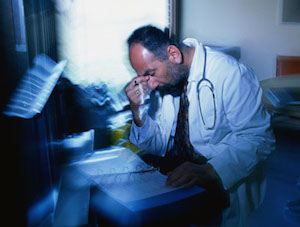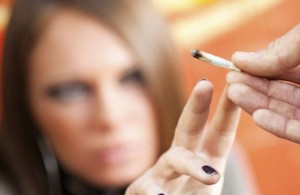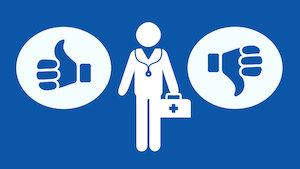Space Coast Daily Healthcare Headlines of the Week
By Dr. James Palermo // July 22, 2014
ABOVE VIDEO: From bubble baths to urban beekeeping, here’s how people manage the tricky task of stress reduction.
Topics Include: Stress Relief, Pot and Paranoia, Risks That Exacerbate SIDS – and More
BREVARD COUNTY, FLORIDA — Welcome to SpaceCoastDaily’s Healthcare Headlines.
DIALING BACK STRESS WITH A BUBBLE BATH, BEACH TRIP AND BEES
 NPR teamed up with the Robert Wood Johnson Foundation and the Harvard School of Public Health to ask more than 2,500 Americans about the ways they relieve stress.
NPR teamed up with the Robert Wood Johnson Foundation and the Harvard School of Public Health to ask more than 2,500 Americans about the ways they relieve stress.
The survey found people are most likely to socialize, meditate or pray, and savor the outdoors and nature to relieve stress—but going outside is the most calming exercise, especially for those with the highest level of stress. (Cole, NPR, 7/16)
BUSY DOCTORS, WASTEFUL SPENDING
Healthcare costs have been escalating “exponentially” over the past 40 years, with the percentage of GDP now approaching 18. Provider compensation has been the primary target in an attempt to control costs since the outset of the “managed care” era in the mid-80s and is an integral element of healthcare reform.
 The progressive pay cuts for physicians has, in order to maintain their income and cover the ever-increasing costs of running a practice, led to increasing the number of patients they see and, in turn, decreasing the amount of time they have to focus on each individual patient.
The progressive pay cuts for physicians has, in order to maintain their income and cover the ever-increasing costs of running a practice, led to increasing the number of patients they see and, in turn, decreasing the amount of time they have to focus on each individual patient.
“There is no more wasteful entity in medicine than a rushed doctor,” argues Sandeep Jauhar, MD, PhD, in The New York Times. It’s imperative that healthcare costs must be contained, but, as Dr. Jauhar so eloquently points out, cutting payments to doctors is a self-defeating strategy. (Jauhar, NY Times, 7/20)
BRITISH STUDY: POT AND PARANOIA ARE LINKED
The largest ever study on the effects of the main psychoactive component of cannabis suggests that users are three times more likely to have paranoid feelings compared with nonusers.
 The findings from the study, conducted by The Guardian, a British national newspaper, in collaboration with colleagues from the University of Oxford, the Institute of Psychiatry at King’s College London, and the University of Manchester and recently published in Schizophrenia Bulletin, did not conclude that cannabis causes paranoia for everyone.
The findings from the study, conducted by The Guardian, a British national newspaper, in collaboration with colleagues from the University of Oxford, the Institute of Psychiatry at King’s College London, and the University of Manchester and recently published in Schizophrenia Bulletin, did not conclude that cannabis causes paranoia for everyone.
However, what the researchers clearly saw was an association between cannabis and paranoia, and that paranoia is not just tenuously linked to cannabis use, but, for a significant number of people, is a direct result of the use of the drug. (Freeman and Freeman, The Guardian, 7/16)
URGENT CARE NOW AN ESTIMATED $14.5 BILLION BUSINESS
The New York Times recently reported on “one of the fastest-growing segments of American health care: urgent care, a common category of walk-in clinics with uncommon interest from Wall Street.”
 Urgent care, “once derided as ‘Doc in a Box’ medicine…has mushroomed into an estimated $14.5 billion business, as investors try to profit from the shifting” healthcare landscape.
Urgent care, “once derided as ‘Doc in a Box’ medicine…has mushroomed into an estimated $14.5 billion business, as investors try to profit from the shifting” healthcare landscape.
In Brevard County there are over 20 urgent care centers, including centers that are an integral element of the county’s three hospital systems, Health First, Wuesthoff and Parrish. (Cresswell, NY Times, 7/9)
MOST CONSUMERS UNCLEAR ON PHYSICIAN QUALITY
Most Americans don’t know how to compare the quality of their doctors, according to a new Associated Press-NORC Center for Public Affairs Research poll.
 The most important factor in choosing a physician should be their quality performance scores that reflect the clinical outcomes of their patients. Unfortunately, although there is available information online related to aggregate quality outcomes for hospitals and some large group practices, there is little or no clinical outcomes data for individual physicians out there.
The most important factor in choosing a physician should be their quality performance scores that reflect the clinical outcomes of their patients. Unfortunately, although there is available information online related to aggregate quality outcomes for hospitals and some large group practices, there is little or no clinical outcomes data for individual physicians out there.
According to the poll, just 22% of those questioned are confident they can find information to compare the quality of local doctors, and few trust quality information from online patient reviews, health insurers, ratings web sites, the media, or even the government. (AP/Modern Health Care, 7/20)
INCREASED RISK OF SIDS WHEN INFANT SHARES BED WITH PARENT
Recent research that appeared in the American Academy of Pediatrics (AAP)’s Pediatrics journal confirmed that the biggest killer of babies up to 12 months old, fatally choking or suffocating themselves at night, called sudden infant death syndrome (SIDS), can be exacerbated by sharing a bed.
 According to the published results, more than 2,000 babies perish each year in the United States alone due to this tragic condition.
According to the published results, more than 2,000 babies perish each year in the United States alone due to this tragic condition.
This research showed up to 69 percent of SIDS occurred when the baby shared a bed with a parent, certainly an eye-opener for parents who may have thought that there was no risk to sharing a bed with their babies.
The researchers also found that younger babies are more likely to die when they’re sharing beds, while older babies face a higher risk of sudden death when there are objects in the crib with them, such as pillows and toys. (The Hoops News, 7/14)












